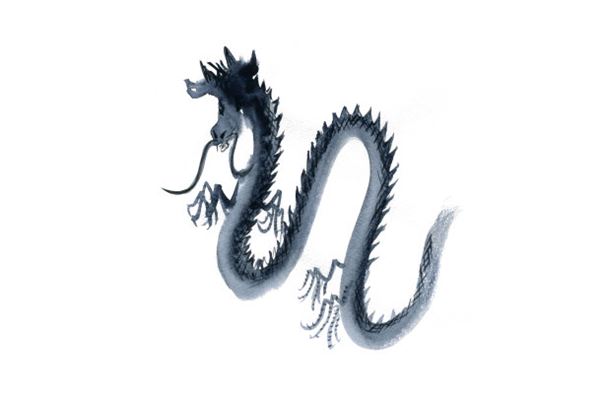Freud interprets dreams
Freud interprets dreams
Most people will not be unfamiliar with the names of Freud and Jung, both of them are authorities in the study of dreams, and Freud is known as the originator of psychoanalysis. Most of the current literature on dream analysis is based on their theory. There are similarities and differences in their interpretation of dreams.
According to Freud, the personality, or human spirit, is divided into three basic parts: the id, the ego, and the superego.
The original self is a variety of mental impulses, that is, animal instincts, and Freud summed up the main content of these mental impulses as hunger, thirst, sleep, sex, etc., in which sexual desire dominates. Because human beings are different from other animals, their instincts are often restricted by practical conditions such as morality and social laws, and some are even more repressed and can not be relieved, and can only seek satisfaction through the form of dreams.
So, Freud said, 'A dream is the fulfillment of an unfulfilled and repressed wish in reality.'
Later, however, Freud became more and more inclined to free association, so that his dream theory did not degenerate into a radical theory.
Another Swiss dream researcher, CarlGustavJung (1875-1961), was also a psychiatrist and a disciple of Freud.
Jung agrees with Freud that dreams are our repressed wishes in reality
But he believes that these repressed desires are not necessarily related to sex, but are a manifestation of subconscious wisdom. Jung believed that dreams represent not only the dreamer's past desires, but also the dreamer's vision of the future.
Jung believed that some human thoughts, desires, and perceptions are innate, and he cited the fear of the dark and snakes as examples, pointing out that humans would react to certain special things in the same way as their ancestors. He believed that dreams were related to religion and emphasized that there was something hidden in our spiritual world that our past experiences and memories could not explain.
He believes that the development of the human mind is related to the past, and not only to the past of the individual, but also to the past of the species and even to the whole long process of evolution of the organic world.
Based on this, Jung discovered that in the spiritual world of human beings there exists a common subconscious - the collective subconscious. He believed that the wisdom that the unconscious mind brings to us through dreams is superior to the insight of the actual conscious mind.
This is in line with the ancient Roman SibyllineBooks, which say that 'man is enlightened in study, but inspired in sleep.'
Jung also believed that dreams are related to the primal forces that direct human behavior and give human behavior motivation, and called these primal forces innate in humans regardless of race 'archetypes'. And these archetypes are invisible to the naked eye abstract things, often only in the dream to know its existence.
If dreams are a reflection of repressed wishes, are these repressed wishes still primarily sexual, as Freud claimed? Or are dreams, as Jung suggested, an expression of our reason and intelligence and related to our collective subconscious?
The 'psychoanalysis' led by Freud and the 'analyticalpsychology' started by Jung have different interpretations of dreams.
I read Freud's The Interpretation of Dreams.
In my opinion, reading is both fun and difficult. It goes without saying that he is a pleasure, and it is difficult to say that it is difficult to read and gnawing, such as reading Freud's 'The Interpretation of Dreams'. In the past 10 years, I have decided to read it three times, and each time I always turn a few pages and a few stops and a few turns to read the last full stop. Recently, as if to complete a feat, or to challenge their willpower, it was not easy to finish reading (should be finished) this book.
Freud's The Interpretation of Dreams, published in 1900. Since its publication, the book has had a profound impact on psychology, literature, art, philosophy and other fields in the future. This book not only deals with the problem of dreams, which has been very confusing to mankind, but also provides a very incisive and unique insight into the wandering of human consciousness and unconscious and shallow conscious behavior. It should be said that he is the founder of psychoanalysis in history and the first person to discover the field of human unconscious. Freud believes that the occurrence and formation of dreams is the expression form of human's repressed wishes and desires. When a person is awake, all his wishes and desires are monitored and controlled by his consciousness. When these wishes and desires are difficult to achieve or frustrated due to social and personal factors, they are turned into dreams to 'satisfy' and 'realize'. According to him, there are three kinds of self: self, superself and id. The quality of these three kinds of 'self-regulation' will have an impact on a person's behavior. Sometimes what the 'self' wants to express is what the society taboos or forces to restrict, so the human consciousness uses empathy, compensation, repression to adjust the inner imbalance, including dreaming. Of course, some of his ideas have always been controversial, such as his 'Libido' theory. 'Libido' is a concept developed by Freud to denote the physiological energy associated with sexual desire. He exaggerates the role of sexual drive and spiritual drive to an absolute degree. In order to demonstrate Ya's view and illustrate his subconscious theory of sex, he draws on Greek mythology to support it, which is the famous Oedipus complex, in which Oedipus killed his father and his mother, and the father complex, in which Electra murdered his mother to avenge his father. This is a familiar story from Greek mythology. After reading Freud's extensive remarks on this subject, I think he was indeed biased. He attributed the Oedipus complex and the Oedipus complex to the subconscious sexual drive and the role of 'Libido', which obviously overemphasized the subconscious sexual drive in human activity energy and ignored other factors. The biggest opponent in this regard was the equally great psychopsychologist Jung, who followed in his footsteps. Jung, who was once a friend of Freud's and then fell out with him, believed that Freud's 'Libido' theory was incomplete, and that he used it to explain the role of the unconscious mind and human dream activity, which would lead to a narrow and representational understanding of dreams. In his view, he believed that the formation of consciousness was influenced by the earlier unconscious mind or soul, and that the formation of the human spirit or soul was the conscious interaction of consciousness. The memories, thoughts, feelings, etc. that appear in the individual unconscious or collective unconscious are the common things of human beings, so we have our happy sleep, reverie, dreams, to compensate and correct the boredom and helplessness of real life. I have looked up Jung's Psychology of the Unconscious, and his argument does make sense, although there are objections from other psychologists. The many controversies in psychoanalysis caused by Ronghe and Freud have never been interrupted, and no one has reached a definitive conclusion.
I think, reading these theories of everyone, can not want to read a novel as a play of ten lines, easy and easy, but should be like sipping wine to chew slowly, while reading, combined with their own life odor and experience of insight, can be beneficial. In my opinion, reading is both fun and difficult. It goes without saying that he is a pleasure, and it is difficult to say that it is difficult to read and gnawing, such as reading Freud's 'The Interpretation of Dreams'. In the past 10 years, I have decided to read it three times, and each time I always turn a few pages and a few stops and a few turns to read the last full stop. Recently, as if to complete a feat, or to challenge their willpower, it was not easy to finish reading (should be finished) this book.
Freud's The Interpretation of Dreams, published in 1900. Since its publication, the book has had a profound impact on psychology, literature, art, philosophy and other fields in the future. This book not only deals with the problem of dreams, which has been very confusing to mankind, but also provides a very incisive and unique insight into the wandering of human consciousness and unconscious and shallow conscious behavior. It should be said that he is the founder of psychoanalysis in history and the first person to discover the field of human unconscious. Freud believes that the occurrence and formation of dreams is the expression form of human's repressed wishes and desires. When a person is awake, all his wishes and desires are monitored and controlled by his consciousness. When these wishes and desires are difficult to achieve or frustrated due to social and personal factors, they are turned into dreams to 'satisfy' and 'realize'. According to him, there are three kinds of self: self, superself and id. The quality of these three kinds of 'self-regulation' will have an impact on a person's behavior. Sometimes what the 'self' wants to express is what the society taboos or forces to restrict, so the human consciousness uses empathy, compensation, repression to adjust the inner imbalance, including dreaming. Of course, some of his ideas have always been controversial, such as his 'Libido' theory. 'Libido' is a concept developed by Freud to denote the physiological energy associated with sexual desire. He exaggerates the role of sexual drive and spiritual drive to an absolute degree. In order to demonstrate Ya's view and illustrate his subconscious theory of sex, he draws on Greek mythology to support it, which is the famous Oedipus complex, in which Oedipus killed his father and his mother, and the father complex, in which Electra murdered his mother to avenge his father. This is a familiar story from Greek mythology. After reading Freud's extensive remarks on this subject, I think he was indeed biased. He attributed the Oedipus complex and the Oedipus complex to the subconscious sexual drive and the role of 'Libido', which obviously overemphasized the subconscious sexual drive in human activity energy and ignored other factors. The biggest opponent in this regard was the equally great psychopsychologist Jung, who followed in his footsteps. Jung, who was once a friend of Freud's and then fell out with him, believed that Freud's 'Libido' theory was incomplete, and that he used it to explain the role of the unconscious mind and human dream activity, which would lead to a narrow and representational understanding of dreams. In his view, he believed that the formation of consciousness was influenced by the earlier unconscious mind or soul, and that the formation of the human spirit or soul was the conscious interaction of consciousness. The memories, thoughts, feelings, etc. that appear in the individual unconscious or collective unconscious are the common things of human beings, so we have our happy sleep, reverie, dreams, to compensate and correct the boredom and helplessness of real life. I have looked up Jung's Psychology of the Unconscious, and his argument does make sense, although there are objections from other psychologists. The many controversies in psychoanalysis caused by Ronghe and Freud have never been interrupted, and no one has reached a definitive conclusion.
I think, reading these theories of everyone, can not want to read a novel as a play of ten lines, easy and easy, but should be like sipping wine to chew slowly, while reading, combined with their own life odor and experience of insight, can be beneficial.
 Dream of each other's love words
Dream of each other's love words  Black Dragon
Black Dragon